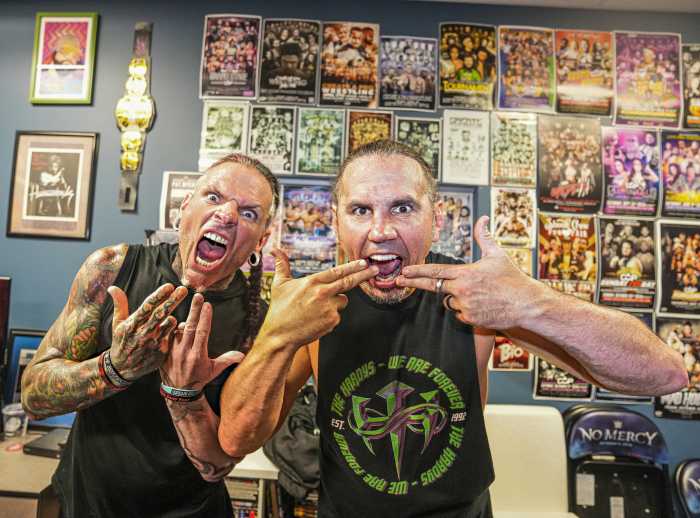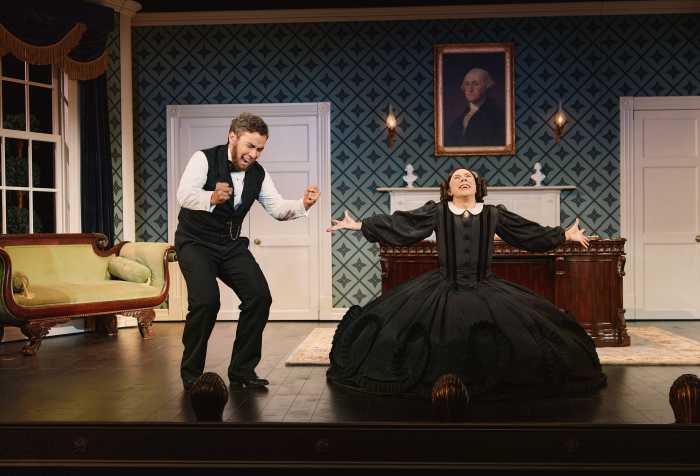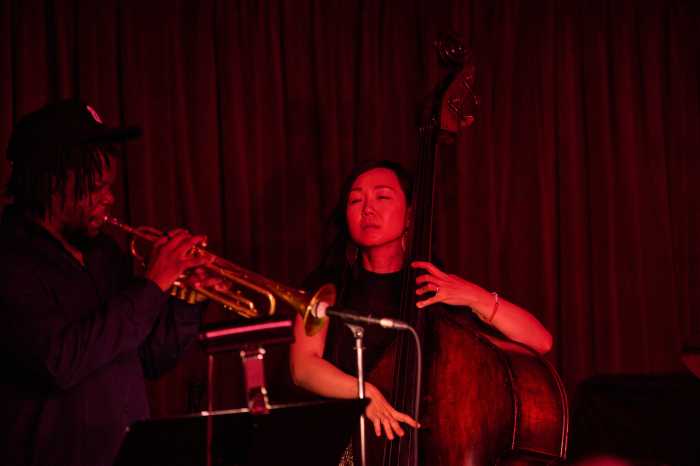If you go: “Me and My Girl” runs at City Center through Sun. W. 55th Street between Sixth and Seventh aves., nycitycenter.org.
The joys of old-fashioned musical comedy (tap-happy dance choreography, tuneful songs, fairy tale romance) are on full display in City Center’s breezy and exuberant concert-style revival of “Me and My Girl,” which serves as a fitting finale to the current Encores! season.
Following a Broadway season dominated by global brands, disappointing new musicals and unbelievably lengthy plays, it is nice to attend a feel-good show that leaves you at intermission with a smile on your face, a catchy tune in your head and a dance in your step.
In the 1980s, half a century since its premiere, “Me and My Girl” was extensively reworked by the late director Mike Ockrent (not unlike his subsequent remake of the Gershwins’ “Girl Crazy” into “Crazy for You”) and became an unlikely hit both in London and on Broadway. Since it had not played Broadway before, composer Noel Gay (who died in 1954) was eligible for and received a Tony nomination for Best Score.
“Me and My Girl” is like a haywire, alternative universe “My Fair Lady” where Eliza Doolittle refuses to shed her Cockney dialect and rough mannerisms, her old pals crash the ball and high society ultimately agrees to adapt to them.
The wisp of a plot isn’t “boy meets girl” so much as boy meets money. Bill Snibson (Christian Borle) of London’s East End is unexpectedly summoned to the English country estate of Hareford Hall, where he is informed that he is its long lost heir. The estate’s executors (Harriet Harris and Chuck Cooper), determined to turn him into a respectable gentleman, urge him to forsake his good-natured working-class girlfriend Sally Smith (Laura Michelle Kelly).
The charming score (best known for the title song, “Leaning on a Lamppost,” “Love Makes the World Go Round” and the irresistibly upbeat dance tune “The Lambeth Walk”) combines elements of operetta, English music hall and period pop. It is a pleasure to hear it played by a full orchestra conducted by Rob Berman (who gets knocked with a beach ball at one point).
Director-choreographer Warren Carlyle (“After Midnight,” “Finian’s Rainbow”) misses no opportunity for showmanship, making production numbers as splashy as possible. He also deserves credit for the superb casting and getting the actors cast to gamely walk the fine line of being silly but sincere and (with the exception of the intentionally ridiculous, samba-style act two opener) not campy.
Playing Bill Snibson is a heavy order. Robert Lindsay won raves for his hyperkinetic, Tony-winning performance on Broadway. But Borle (sporting a bowler hat, mustache and mischievous Cheshire cat grin) turns in a fully-charged, very satisfying performance, which is nicely counterbalanced by Kelly’s (“Mary Poppins”) tenderhearted and wistful turn as Sally.






























